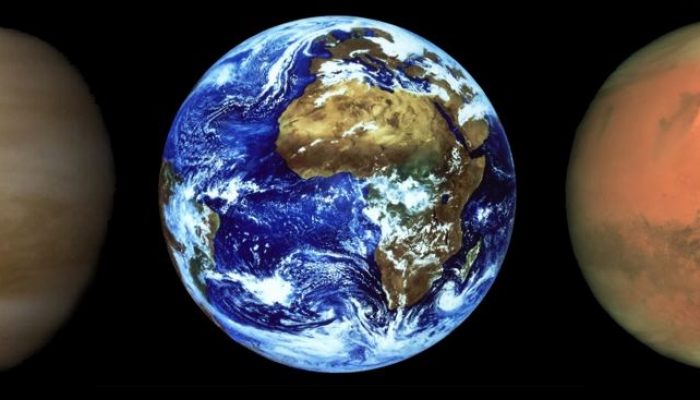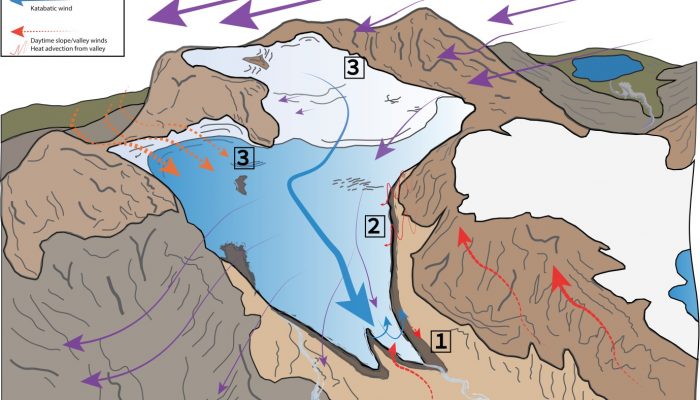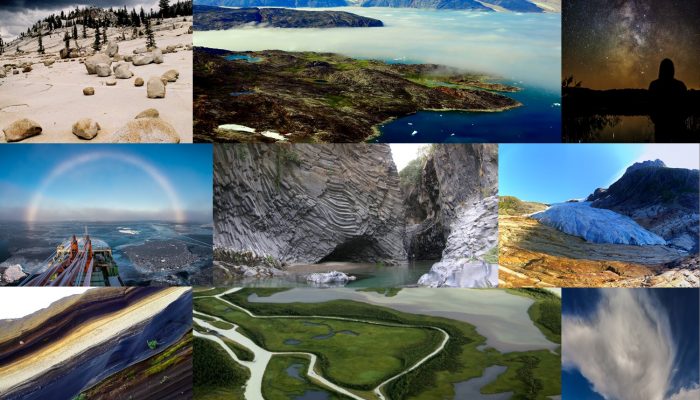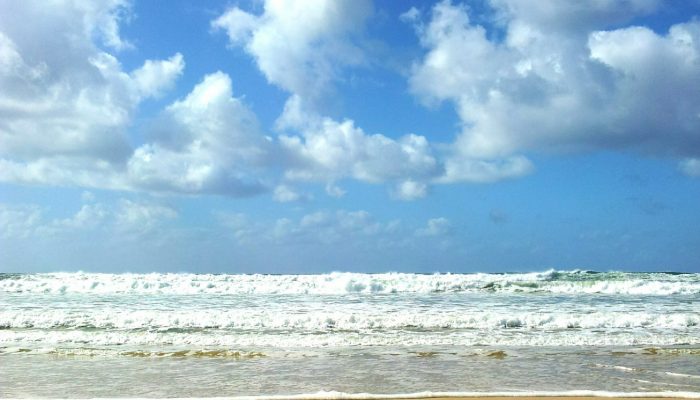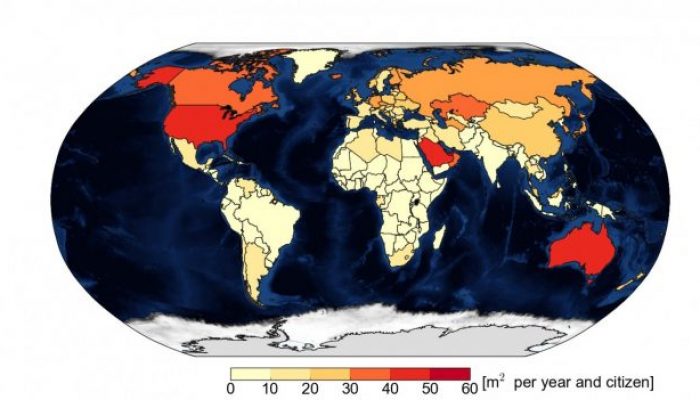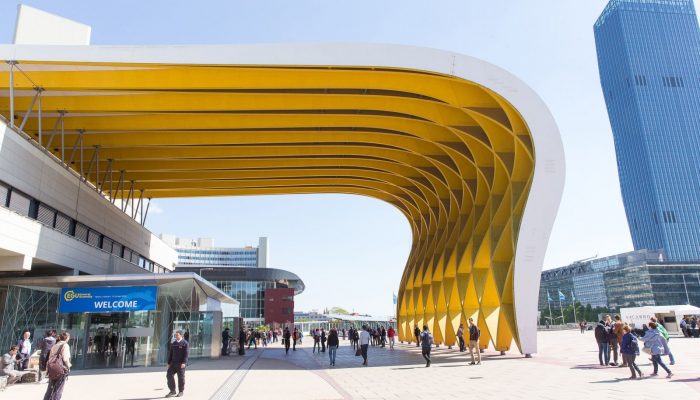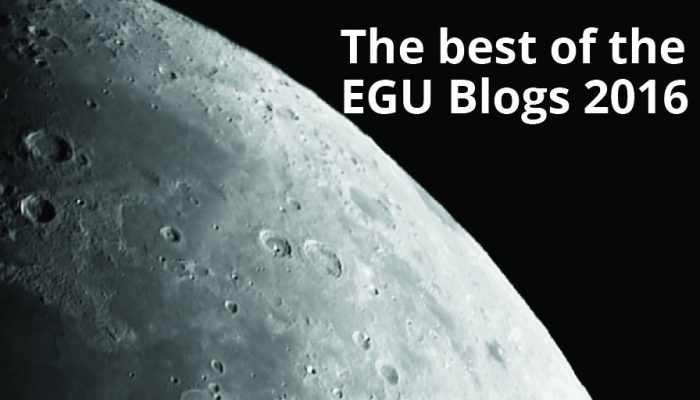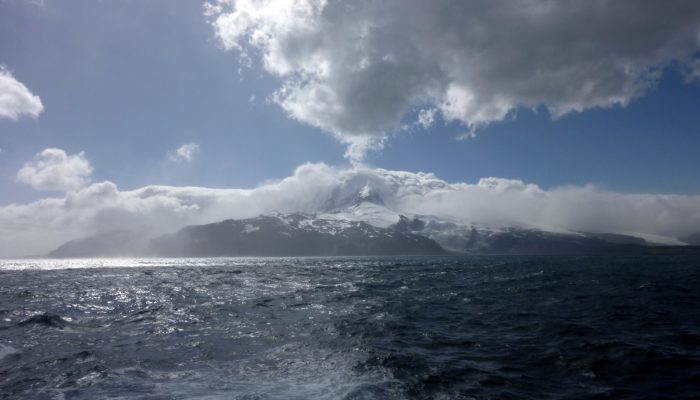Our paper of the month is “Bubbles attenuate elastic waves at seismic frequencies: First experimental evidence” (N. Tisato et al., 2015) commented by Luca De Siena. Luca De Siena is Lecturer in Geophysics at the School of Geoscience, University of Aberdeen (UK). He received his PhD from the University of Bologna (Italy) with a scholarship from the INGV-Osservatorio Vesuviano for his work on seism ...[Read More]
WaterUnderground
How did our planet get its water?
Post by WaterUnderground contributors Elco Luijendijk and Stefan Peters from the University of Göttingen, in Germany. After my first ever scientific presentation, someone in the audience asked a question that caught me off guard: “Where does the groundwater come from?”. “Ehm, from rainfall”, I answered. The answer seemed obvious at the time. However, we did not realize at the time that this is a ...[Read More]
Cryospheric Sciences
Katabatic winds – A load of hot (or cold) air?
It might seem obvious that a warming world will lead to a reduction in glacial ice cover, but predicting the response of glaciers to climatic change is no simple task (even within the short term). One way to approach this problem is to come up with relationships which describe how glaciers interact with the world around them, for example, how the ice interacts with the air above it. Our post today ...[Read More]
GeoLog
EGU Photo Contest 2017
If you are pre-registered for the 2017 General Assembly (Vienna, 23 – 28 April), you can take part in our annual photo competition! Winners receive a free registration to next year’s General Assembly! The eighth annual EGU photo competition opens on 1 February. Up until 1 March, every participant pre-registered for the General Assembly can submit up three original photos and one moving image on an ...[Read More]
GeoLog
Imaggeo on Mondays: littoral rainforests
Making room for growing populations, and the resources they demand, comes at the cost of precious natural environments. Rainforests, globally, are under threat from farming, logging and ever expanding cities. It is reported that if current rates of exploitation continue, the world’s rainforests could be lost within the next century. Like almost anything else, rainforests come in all shapes a ...[Read More]
Cryospheric Sciences
Image of the Week – For each tonne of CO2 emitted, Arctic sea ice shrinks by 3m² in summer
Declining sea ice in the Arctic is definitely one of the most iconic consequences of climate change. In a study recently published in Science, Dirk Notz and Julienne Stroeve find a linear relationship between carbon dioxide (CO2) emissions and loss of Arctic sea-ice area in summer. Our image of this week is based on these results and shows the area of September Arctic sea ice lost per inhabitant d ...[Read More]
GeoLog
A first-timer’s guide to the 2017 General Assembly
Will this be your first time at an EGU General Assembly? With 13,650 participants in a massive venue, the conference can be a confusing and, at times, overwhelming place. To help you find your way, we have compiled an introductory handbook filled with history, presentation pointers, travel tips and a few facts about Vienna and its surroundings. Download your copy of the EGU General Assembly guide ...[Read More]
Seismology
Earthquakes felt by Eeyore
“It’s snowing still,” said Eeyore gloomily. “So it is.” “And freezing.” “Is it?” “Yes,” said Eeyore. “However,” he said, brightening up a little, “we haven’t had an earthquake lately.” A.A. Milne, The House at Pooh Corner (1928) The above is a quote from one of two classic Winnie-the-Pooh books by A. A. Milne. Upon ...[Read More]
GeoLog
Announcing the winner of the EGU Best Blog Post of 2016 Competition
There is no doubt that 2016 was packed full of exciting, insightful and informative blog posts. An impressive 360 posts were published across the EGU’s official blog, GeoLog, as well as the network and division blogs! In December, to celebrate the excellent display of science writing across the network and division blogs, we launched the EGU Blogs competition. From a list of posts selected by our ...[Read More]
GeoLog
Imaggeo on Mondays: the remotest place on Earth?
Perhaps a bold claim, but at over 4,000 km away from Australia and 4,200 km from South Africa, Heard Island is unquestionably hard to reach. The faraway and little know place is part of a group of volcanic islands known as HIMI (comprised of the Heard Island and McDonald Islands), located in the southwest Indian Ocean. Shrouded in persistent bad weather and surrounded by the vast ocean, Heard Isla ...[Read More]

